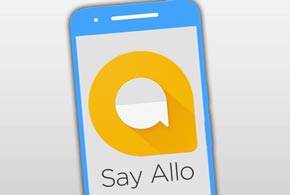The app’s failure to encrypt data and the storing of chat conversations on Google servers are a problem, some say.
Google this week released its new messaging application Allo as expected and almost immediately found itself under fire for allegedly backing off a commitment to a privacy feature that it had previously pledged.
Allo is a mobile messaging application for Android and iOS devices powered by Google’s machine learning technology. Google is touting it as an application that people can use to communicate with each other in a more intuitive and user-friendly manner.
Allo supports a feature called Smart Reply that pops up canned responses to incoming messages so users don’t have to spend time typing their replies to every message they receive. Gmail on mobile devices already supports such a capability. With Allo, Google has brought it into the messaging space.
Allo’s automated replies are designed to pick up on the content and the context of the received messages as well as the user’s normal style and tone when using the application, according to Google. Google has said that Smart Reply is designed to learn and improve over time and become better at mimicking the user’s style of voice with use.
“If your friend sends you a photo of their pet, you might see Smart Reply suggestions like ‘aww cute!,'” said Amit Fulay, group product manager at Google. And over time it will be able to tell whether a user is a “haha” kind of person or one who prefers to express via emoticons and emojis. “Smart Reply will improve over time and adjust to your style,” Fulay said.
In a nod mostly to younger users, Google Allo also packs a lot of emojis and stickers that they can use to express themselves or add to conversations. The app gives users the ability to comment and scribble on photos before sending them along and has 25 sticker packs that the company says was developed in collaborations with artists from around the world.
With Allo, Google has also introduced a preview edition of Google Assistant, a feature that lets users interact with multiple applications directly from their chat interface. The idea is to give users a way to do things like finding an address, making a dinner reservation or sharing a YouTube video without having to leave the chat application.
Google announced Allo when it released its one-to-one video application Duo at its I/O conference earlier this year.
At that time, members of the Allo team are alleged to have noted that Google would only transiently store Allo messages and conversations on its servers.
But the version released this week stores all conversations, except those conducted via an Incognito Mode, indefinitely on Google servers by default. Users will have to delete the messages for them to be removed from Google servers, the Verge said in a report this week.
Importantly, Google has also decided not to encrypt any of the conversations that people carry on with Allo, making them easier to intercept and read. According to the Verge, Google is apparently storing chats on its servers and not encrypting conversations because that makes it easier for Allo to learn from previous conversations.
The company’s decision prompted former National Security Agency contractor Edward Snowden to warn people not to use the application. “What is #Allo?” Snowden tweeted following the release of the application. “A Google app that records every message you ever send and makes it available to police upon request,” he said.
“Free for download today: Google Mail, Google Maps, and Google Surveillance. That’s #Allo. Don’t use Allo.”
Google did not respond immediately to a request for comment.






